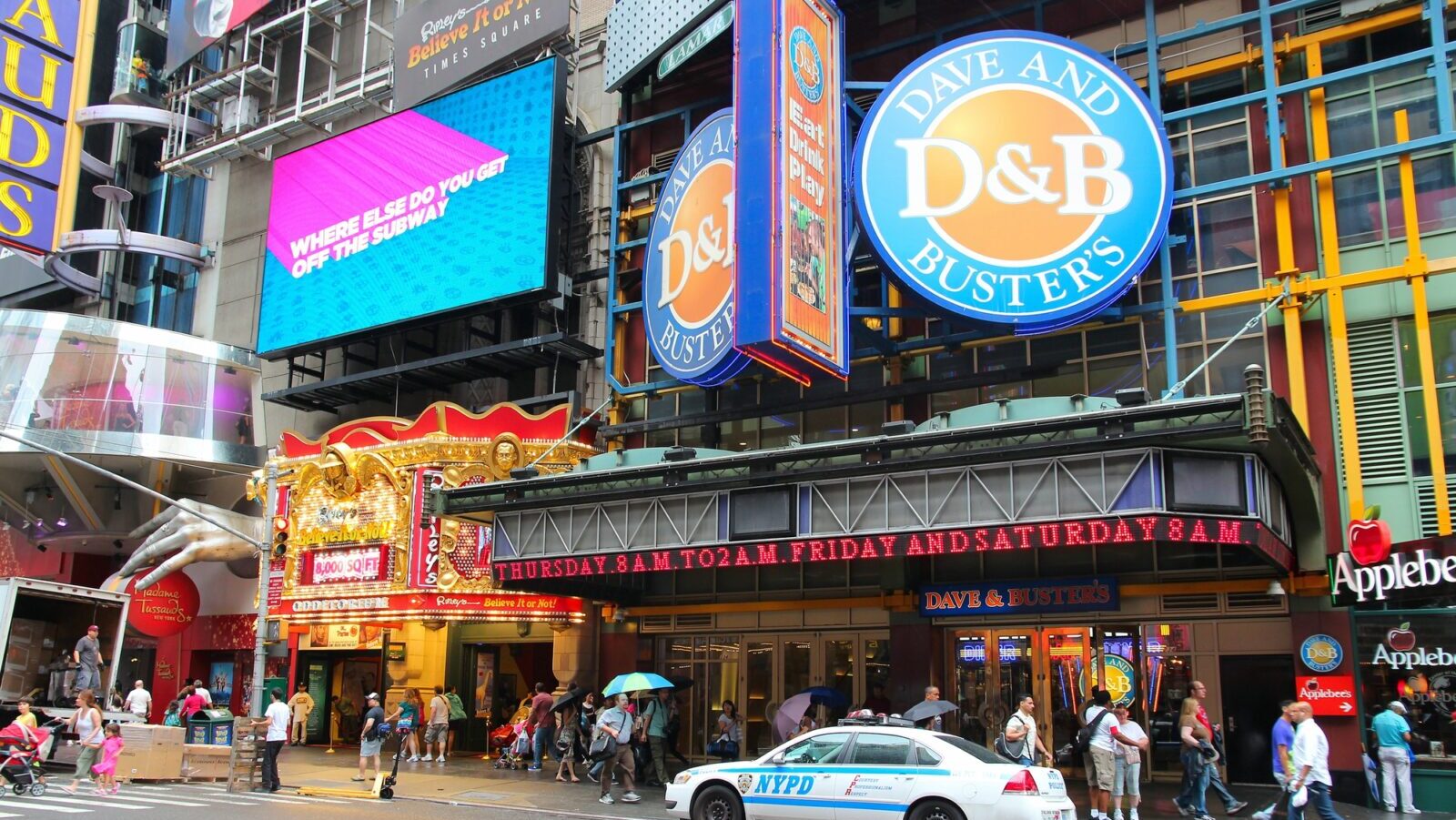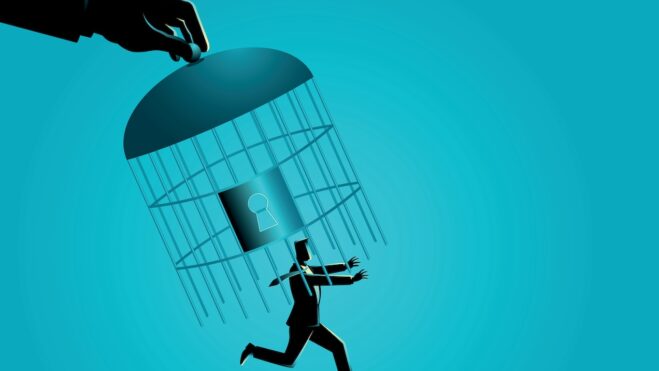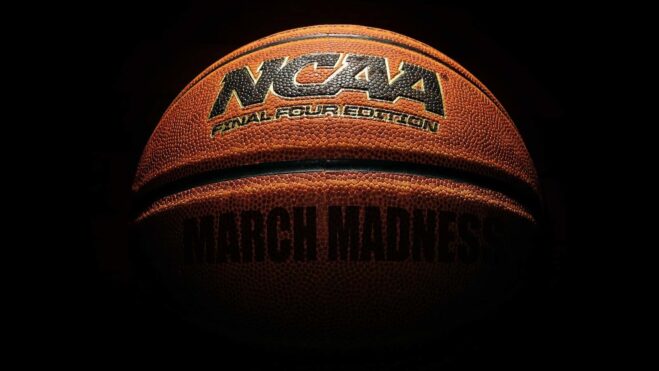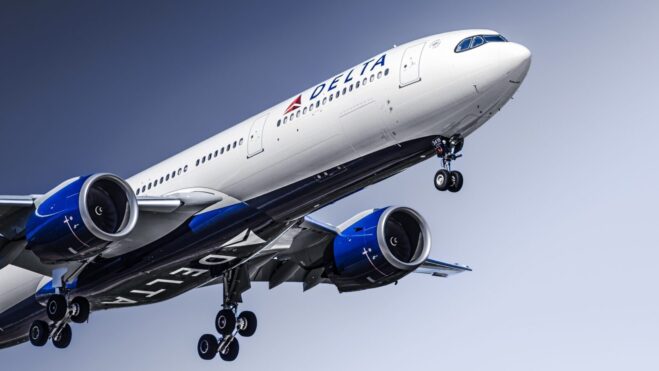The History Of The Great Arcade Gaming Era
It was late April 2024, and the gaming press was abuzz with the notification that Dave & Buster's was embracing something similar to betting at its arcades.
5 min

It all started innocently enough.
It was late April 2024, and the gaming press was abuzz with the notification that Dave & Buster’s was embracing something similar to betting at its arcades.
In order to facilitate this betting, for it was apparently too much trouble for two people to agree to a $5 bet on a Skee-Ball match and then reach into their pockets to settle up, the company had hired Lucra, a technology provider whose vision is “To connect, energize, & inspire communities through the power of friendly competition.” The news releases did not list any companies that existed to inspire communities through unfriendly competition, disappointing everyone in Boston and New York.
This announcement immediately set off the period known in gaming history as The Great Arcade Era. Chuck E. Cheese, in early July of 2024, announced it would also be offering betting in its arcades.
It was interesting to note that within six months, Chuck E. Cheese and Dave & Buster’s were firing lawsuits at one another when Chuck E. Cheese hired Dave & Buster’s super host, 11-year-old Tommy Johnson, whose parents were known to blow serious money on marathon rounds of air hockey and drive over 50% of the action at the Pop-A-Shot.
The early days
One of the first responses to the Dave and Buster’s announcement was that all members of the Los Angeles Dodgers and/or their interpreters were no longer allowed to enter any facility with an arcade.
Almost immediately after the D&B announcement, several gaming operators negotiated six- and seven-figure advertising buys with the Cartoon Network.
Also, the affiliates were quick to enter the space, with the leading firm being the now well-known “Play Slots Around Tots.” One of its best-known articles was “Teach Your Kid to Sweat a Bet.”
The American Gaming Association immediately realized the potential that the arcade world offered, and in 2025, expanded its board to 218 members with the addition of the arcade folks. The AGA also immediately initiated an aggressive campaign to get U.S. Attorney General Merrick Garland to begin a serious crackdown on the scourge of offshore arcade betting.
The people who run the carnivals and fairs across the U.S. also saw an opportunity here for additional revenue, an especially important attribute to offset the incredible insurance premiums these folks pay for all the people they damage and kill on their rickety amusement rides. Now, not only could the high school football hero win a big stuffed bear for his sweetheart Sally on the milk bottle game, balloon darts, or the duck pond, but if he were 18, he could parlay wins across all contests for some serious money.
The regulators had their say
Because of concerns over game integrity and the suitability of industry participants, the Nevada Gaming Control Board was appointed as the official regulatory agency to oversee the arcade and carnival games segment across the U.S. When reporters Dana Resnick Gentry and John L. Smith, the only two legitimate gaming journalists left in the U.S. in 2031, contacted the Nevada Gaming Control Board to ask why there had been no regulatory actions in the first seven years of the arcade boom, the NGCB replied that it was the Gold Standard, which it said was all that mattered.
The Massachusetts Gaming Commission had its own meeting to discuss the appropriateness of arcade gaming, and it ended after 27 hours when Commissioner Eileen O’Brien stated, “This is total bulls***.”
In 2025, New Jersey and Nevada immediately amended their Indoor Clean Air Acts to allow for smoking in arcades. Sure, it killed some kids and made others sick, but hey, there are operator profits and tax revenues to be considered.
In 2026, the American Gaming Association renamed itself the American Gaming, Arcade, and Carnival Games Association. It conducted a special research project by asking four people on a park bench what they thought of the arcade boom. It then published the results, suggesting that it helped kids learn math and money handling and allowed for great family fun.
The AGACGA also pointed out that the arcade environment increased children’s vocabulary by introducing the terms “tout,” “bad beat,” and “the worst of it.” The children also learned how to improve their communication skills by calling the Problem Gamblers Hotline about their parents.
Boom and bust
One unanticipated benefit of the arcade world’s gamification was the increased employment it generated. One example is 16-year-old Ben “Don’t Call Me Bugsy” Meyers. Ben’s firm, Sleeping with Fishes, sets the exchange rate between Skee-Ball tickets and betting cheques — an important exchange rate when parents try to grab the Skee-Ball tickets from their kids to trade for money to use when the parent’s betting app is tapped out.
One can never forget Black Wednesday in March 2027 in the arcade world. On this date, a federal task force raided over 213 arcades, seized Skee-Balls illegally weighted with plugs made with fishing weights, found over 2,000 containers of tainted Air Hockey Glide, and discovered numerous basketball hoops with openings over two-thirds of an inch too small.
At the Organized Crime Hearing on Arcade Betting Scams held in 2028 before the U.S. Senate in Washington, D.C., many of the children held their ball caps over their faces to avoid being photographed as their parents were forced to testify at the hearings. The main piece of legislation to result from these hearings was a new federal law mandating that arcades needed to offer safe parking lots for the kids to sleep in their parents’ cars, while the parents were inside trying to get even.
In 2029, Dave & Buster’s began previewing the new High Limit Air Hockey Lounge at its Wichita location. The cocktail and mocktail service provided a wide variety of beverages, including wine, hard liquor, juice boxes, and Fizzies.
The inevitable crash
Many legislators across this country were becoming quite concerned about having something that looks like gambling, walks like gambling, and quacks like gambling in the proximity of children. They apparently overcame this concern as the lobbyists and operators handed them bushel baskets of cash, which they were happy to receive — right before they approved the new arcade betting practices and right after they had taken long positions in the arcade companies’ stock.
The news in the last 24 years was not all good, however. Sally Thompson, age 12, had to break her date with Timmy Wilson at the Dewey Elementary School 8th Grade Sock Hop because Timmy’s dad had kicked Sally’s dad’s butt on an air hockey total and side single game parlay and then trash-talked him in front of the kids at Sally’s birthday party at Dave & Buster’s.
And then there was the Great Chuck E. Cheese Chicago Arcade Riot in 2029. Tommy Perkins was having his 10th birthday party, and his dad lost his bankroll to Jimmie Brady’s dad, who threw the birthday cake at him. Some 60 law enforcement personnel were needed to quell the riot, which spread to over six blocks of Chicago.
Throughout the Arcade Gaming Era, The New York Times, Washington Post, Wall Street Journal, and others continuously criticized a model that integrated drinking and gambling adults with arcade-playing children. The industry and its lobbying entities made the point that these hit pieces all misunderstood that when two adults play a game for money in an arcade, it is not gambling. It is something else.
This whole debate was resolved when, in 2038, Elon Musk launched his newest firm, DegenBrainLink, where a chip was placed in peoples’ brains, and if they wanted to gamble, they just had to think about it.
Richard Schuetz entered the gaming industry working nights as a blackjack and dice dealer while attending college and has since served in many capacities within the industry, including operations, finance, and marketing. He has held senior executive positions up to and including CEO in jurisdictions across the United States, including the gaming markets of Las Vegas, Atlantic City, Reno/Tahoe, Laughlin, Minnesota, Mississippi, and Louisiana. In addition, he has consulted and taught around the globe and served as a member of the California Gambling Control Commission and Executive Director of the Bermuda Casino Gaming Commission. He also publishes extensively on gaming, gaming regulation, diversity, and gaming history.






